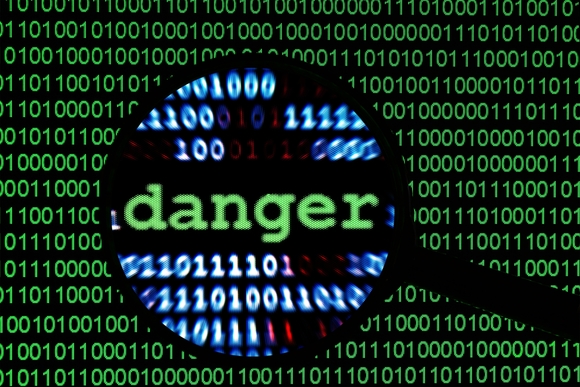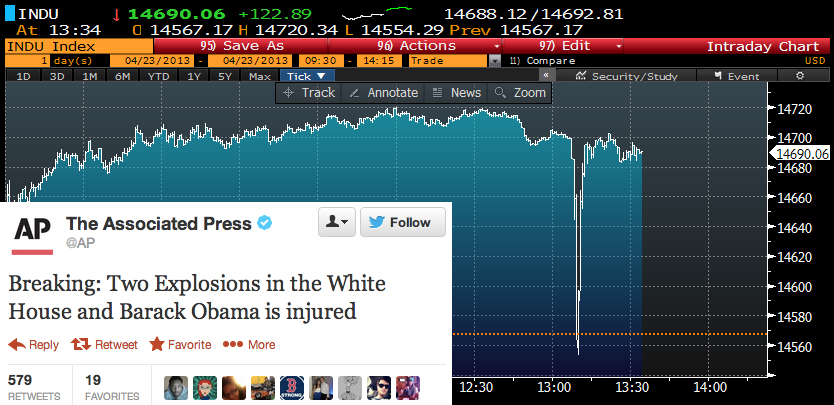Digital data extortion is nothing new. A while ago, clients of the hacked-to-death Bitcoin exchange Mt.Gox have received ransom demand in return of the deletion of stolen personal info. That was also not the first incident of similar modus operandi. However, it seems that such events has become much more frequent. Within this week alone, at least two high-profile finance-related institutions fell victim.
Digital data extortion is nothing new. A while ago, clients of the hacked-to-death Bitcoin exchange Mt.Gox have received ransom demand in return of the deletion of stolen personal info. That was not the first incident of similar modus operandi. However, it seems that such events has become much more frequent lately, and targets bigger fishes. Within this week alone, at least two high-profile finance-related institutions fell victim.

WSJ And ECB
On July 22, a part of The Wall Street Journal computer systems was allegedly hacked by a hacker nicknamed 'w0rm'. The WSJ itself reported that the hacker has announced publicly in Twitter about his action and offered to sell user information as well as credentials that needed to control the server. Andrew Komarov from cybersecurity firm IntelCrawler confirmed that the hacking could be inflicted on the WSJ news graphics database.
Then yesterday (24/7) reports came out that the European Central Bank (ECB) has received a ransom demand in July 21 for the data of about 20,000 names and contacts of people who have signed up to attend events held by the central bank. Unknown hackers apparently has attacked European Central Bank (ECB) database. Fortunately, it did not compromise market-sensitive data. The incident has been investigated, by till this news is written, there has been no further announcement.
Delicious Target
News publication are delicious target for hackers, as other medias have also experienced similar attacks over the years. The most infamous one to date was the Associated Press's Twitter account hacking about a year ago. The account was compromised by hacker who then tweeted Breaking: Two Explosions in the White House and Barack Obama is injured. In an instant, investors in the NYSE were panicked and sent Dow Jones Stock index to plunge.
 A Screenshot of Stock Market plunge following AP twitter hacking incident (inset: the tweet)
A Screenshot of Stock Market plunge following AP twitter hacking incident (inset: the tweet)
In a world where online news websites and social media hold an ever-growing influence, such attack could inflict huge losses in the range of millions of dollars. And that goes double when public service such as central bank became the target of hacking. Yes, it probably is okay now; but what about the next one? Even more worrying is because personal info in the cyber era is practically priceless, and no one can be assured that once an information is ransomed, the data thieves will not use it for nefarious purposes. Therefore, it is extremely urgent for the aforementioned institutions to step up their cybersecurity game; simply patching data breach is not enough.
But the ones who repeatedly fell eventually are those who have became a victim before. The recent WSJ hacking is not the first; several months ago, its facebook account were already hacked. Forex trading service provider eToro that was hacked in the beginning of this month, apparently suffered hacking attacks last year too. Their inability to secure their system is, sometimes, quite blatant.
For ordinary players in the financial market like us, these concerns are very much urgent. There are many risks as the consequence of such hacking attacks: making wrong decision based on wrong information (see the Dow screenshot above), private and financial information being stolen, being targeted by fraudsters, and many others. These circumstances makes it urgent for us to always check-and-recheck every information before making decisions. Below are some steps you could take to prevent fatal damages when the sites you frequented is attacked:
- Check-and-recheck every information before making key decisions. Learn from the AP hacking incident.
- Taking more careful approach in replying emails; ensure that the email address is valid, and confirm through phone before taking action if needed.
- Never put your money in only one account, and don't sent out your credit card details carelessly to every vendor.
Well, those what passes our minds after knowing about these hacking attacks. Do you have other ideas? feel free to share them.

 Dedicated FREE FOREX VPS
Dedicated FREE FOREX VPS Free FOREX Virtual Private Server
Free FOREX Virtual Private Server MT4 Demo Contest, Get $500
MT4 Demo Contest, Get $500 Sign Up for an Account, Claim 60% Deposit Bonus
Sign Up for an Account, Claim 60% Deposit Bonus Free MT4/MT5 VPS 2024
Free MT4/MT5 VPS 2024 Send E-mail and Get Free Merchandise
Send E-mail and Get Free Merchandise $1K Refer a Friend Bonus for Pepperstone Pro clients
$1K Refer a Friend Bonus for Pepperstone Pro clients Maximize Your Earnings with 100% Deposit bonus
Maximize Your Earnings with 100% Deposit bonus Trade to Win, $5,000 Monthly Demo Contest
Trade to Win, $5,000 Monthly Demo Contest Claim 30% + 15% Deposit Bonus from LiteFinance
Claim 30% + 15% Deposit Bonus from LiteFinance






